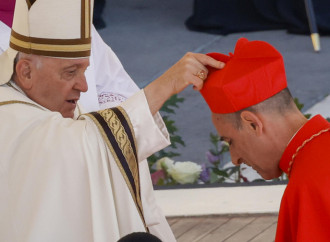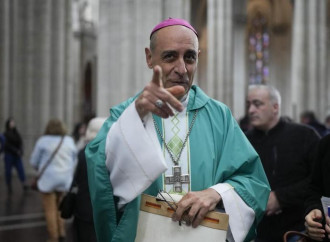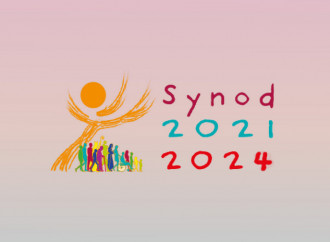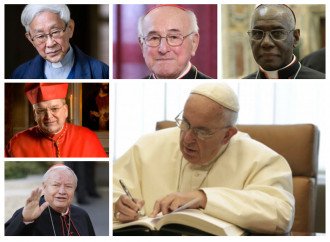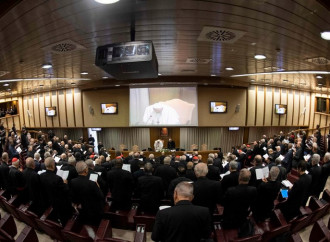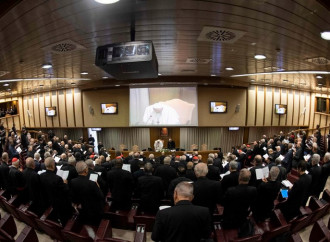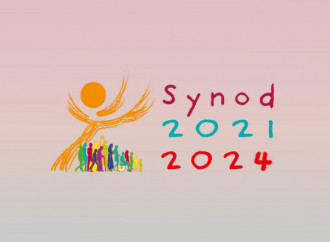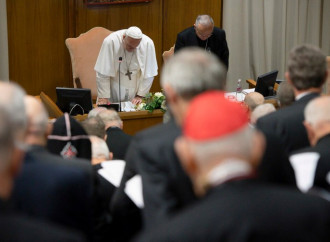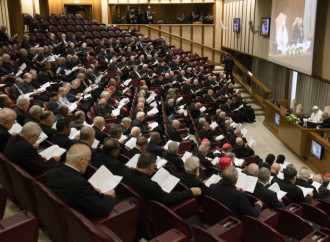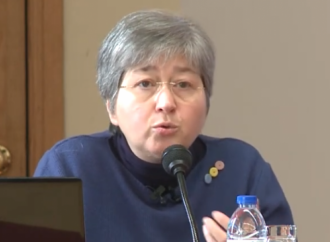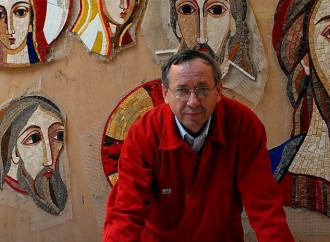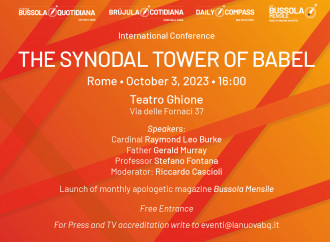Yes, yes, or perhaps not: Francis raises more doubts than the Dubia
The response to the "first version" of the questions posed by the five cardinals offers clarity on only one point: the blatant refusal of the Supreme Pontiff to respond in a timely manner, preferring to leaving gray areas and glimmers of possibilities "ad usum synodi".
Vatican claim Pope replied to Dubia is a sensational mystification
The attempt by the Dicastery for the Doctrine of the Faith together with Vatican Communication to cushion the blow caused by the publication of the five cardinals’ dubia, conceals the truth: the pope did not really respond and there is much more to say.
The dubia will bear fruit in due time
The dubia presented to the Pope are a perfectly legitimate initiative, which adequately corresponds to the faithful’s act of assent. It is not a question of putting the Pope in difficulty, but of turning to that office which belongs to him alone. And, they should not be considered in terms of immediate success.
Five cardinals question Pope on Synod topics: Here’s their Dubia
Cardinals - Burke, Brandmüller, Sarah, Zen, Sandoval - make public the five doctrinal questions they posed Pope Francis for clarification and to which he did not reply. The themes: the immutability of doctrine, blessing of homosexual couples, nature of the Church, female priesthood, sacrament of reconciliation.
Letter to the Faithful II Five cardinals with 5 dubia II Dubia reformulated
Dear Brothers and Sisters in Christ...., the letter sent by the 5 cardinals
In view of the Synod, due to the statements on serious matters contrary to the doctrine of the Church multiplying, we cardinals asked the Pope for clarification, but he did not respond. Therefore, we have now decided to make our letter public so that the faithful do not fall into error. This is the text of the Notification to the Faithful regarding the Dubia.
Five cardinals with 5 Dubia
The immutable doctrine, blessing of gay unions, nature of the Church, female priesthood, sacrament of reconciliation. This is the text of the first five dubia sent to Pope Francis.
Your Holiness, your reply is not enough. Let us reformulate the Dubia for you.
Pope Francis' response to the first letter not only does not clearly respond to the advanced Dubia, but creates even more concern. This is the text of the reformulated Dubia.
From Synod to Synodality, this is how praxis becomes doctrine
Precedents of this pontificate suggest that the conclusions of the Synod will become Magisterium without requiring the Pope's intervention with a post-synodal Exhortation. It’s another sign of a break with tradition.
The Church prepares for the Synod in silence and divided
The preparation for the Synod which opens on 4 October is scarcely participated by the People of God. On the other hand, there’s growing conflict among those involved. Not exactly a good start.
“Father Rupnik abused me, now I want to save other women”
“Rupnik and Sr Ivanka Hosta are very dangerous, they must be stopped permanently.” “Many nuns are still paying for the abuse they suffered, we have never had any help, neither material nor psychological." "The bishops must understand that hiding evil destroys the Church." In an exclusive interview, Fabrizia Raguso tells her story to the Daily Compass. She is one of the Slovenian Jesuit’s victims and among the first to give birth to the Loyola Community.
Vicariate of Rome “snubs” Rupnik's sex abuse victims
Two days after the meeting between the Pope and the director of the Aletti Centre, the diocese of Rome speaks of a “healthy community life devoid of particular criticalities”. Notably, the sexually abused women continue to be forgotten and voiceless.
The Synodal Tower of Babel: Daily Compass Rome conference
On the eve of the Synod on Synodality, apparently orchestrated to guarantee a desired outcome, the Daily Compass is holding a conference in Rome to lay bare what’s at stake. The conference takes place on October 3, in the Ghione Theatre, at 16:00. The distinguished speakers are Cardinal Raymond L. Burke, Father Gerald Murray and Professor Stefano Fontana. It’s open to the public and entrance is free.
